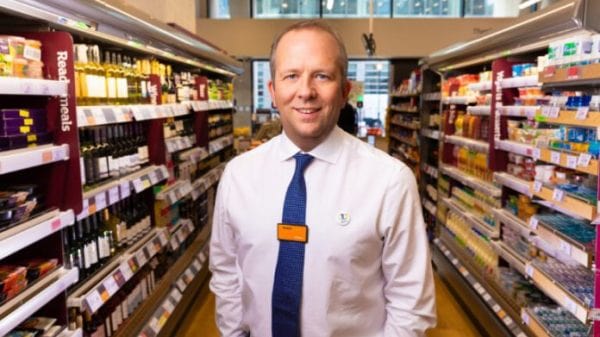Tesco is rewinding the clock back to the days of traditional bakeries by removing plastic from a number of its most popular items and selling loose loaves of bread.
The moves will result in the annual removal of 33 million pieces of plastic from loaves of bread and doughnuts, and reduce the plastic used to pack breakfast pastries by more than 120 tonnes each year.
Nearly 25 of the supermarket’s in-store bakery bread lines are now being sold loose, although customers can request a paper bag should they want one.
Doughnuts will now be sold in a fully recyclable paper bag with a glassine window.
And in a move that significantly reduces the amount of plastic being used, croissants and pain au chocolat will switch from plastic trays to a traditional recyclable paper bag with a small plastic window.
Both the pastries and doughnuts will be hand-packed in store into bags that are structurally sturdy with a flat base, to ensure they still get home in perfect condition.
Tesco Group Quality Director Sarah Bradbury said:
“Many of our customers remember the days when bakeries used much less plastic and we want to go further and faster in removing plastic where alternatives are possible.
“We’re really pleased that we have been able to make this move across our in-store bakeries, as part of our plans to cut down on plastic without compromising on freshness and quality.”
Catherine David, Director Collaboration and Change of Climate Action NGO, WRAP said:
“It’s positive to hear of further moves by Tesco, a founding member of The UK Plastics Pact, to remove unnecessary packaging and tackle plastic waste.
“We must continue to go further, particularly to remove soft plastics like bags and wrappers which is too frequently used needlessly.
“Initiatives by Tesco such as the removal of pointless plastic around multi-packs, while ensuring that shoppers are not short-changed, is a win-win for its customers and the environment. Let’s keep this momentum going.”
This move comes as part of Tesco’s 4Rs packaging strategy to tackle the impact of plastic waste. This means Tesco removes plastic where it can, reduces where it can’t, looks at ways to reuse more and recycle what’s left.
The supermarket’s latest plastic reduction initiative follows the move to remove plastic multipacks from a range of drinks.
Since the launch of the 4Rs strategy in August 2019, Tesco has removed 1.8bn pieces of plastic and further reduced packaging by more than 3000 tonnes from its annual footprint.
Fruit juices, crisps and cheese are among many products that are all now being produced using less plastic.
Tesco recently invited suppliers to a sustainability event to discuss new ways to eliminate even more plastic waste where it matters most.
As a part of the event, Tesco set out a new aim to work with suppliers in order to remove plastic from five billion own brand and branded products sold each year, by 2025.





